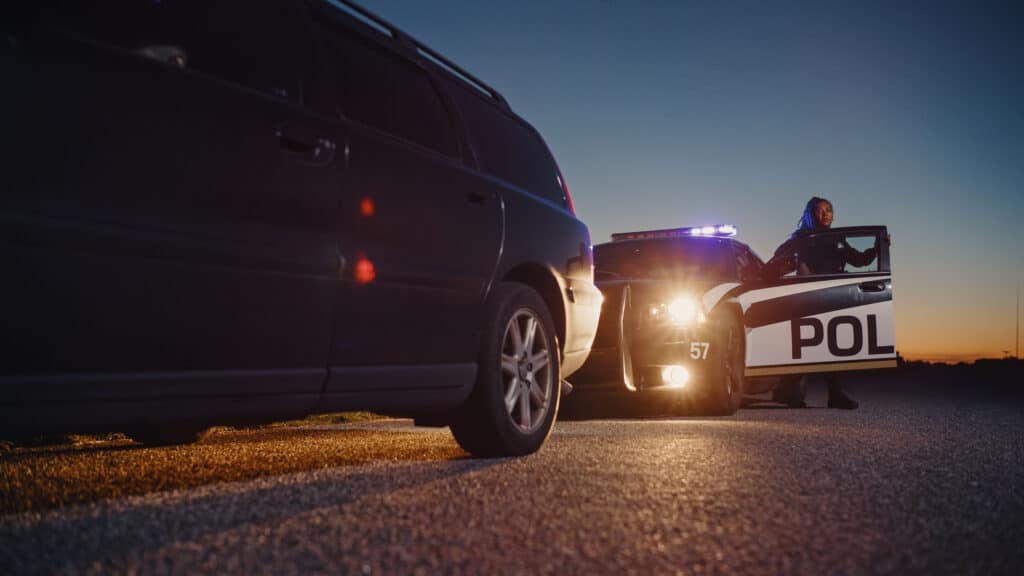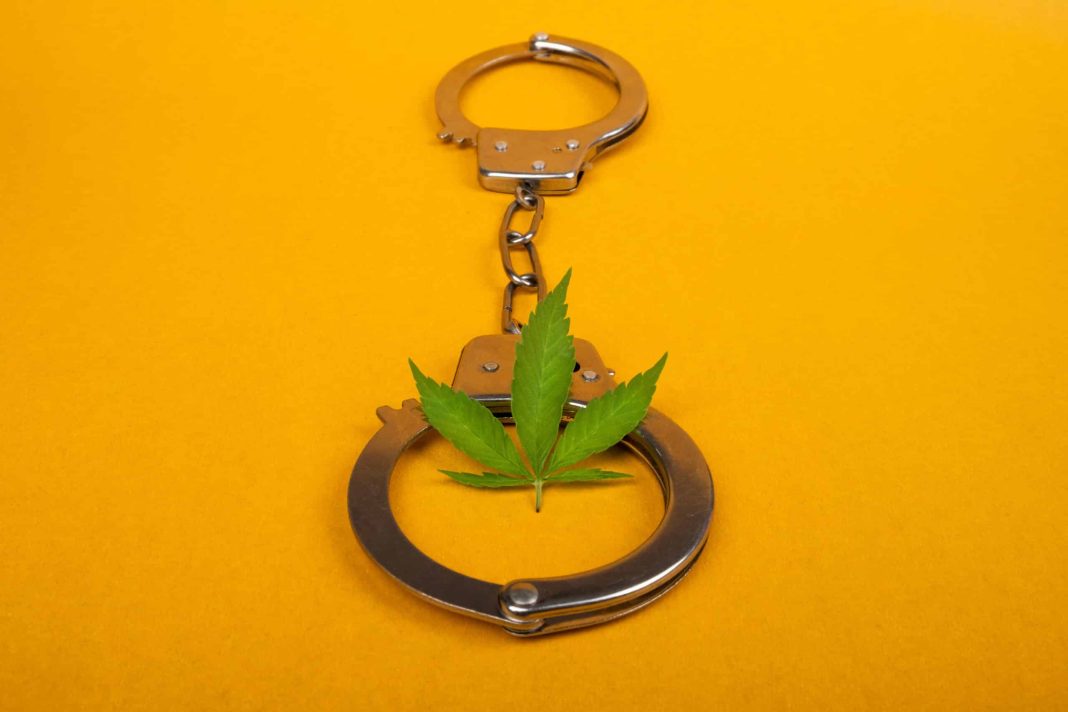A recently reported story of a budtender arrest, points to how inconsistent cannabis legalization laws are; and how those who they’re meant to help, are still getting screwed.
The truth of cannabis legalization laws
We make a big deal about passing cannabis legalization laws, but the laws that get passed, fall very short of a full legalization. In fact, they’re often inconsistent, centered around business, have a narrow scope, and are still hurtful to the populations that politicians like to say they are meant to help most.
Legalization laws are meant for the population at large, but often, the laws are said to be designed to help those from locations most hit by drug wars. This concept is called social equity. Along with this, many locations add provisions to drop previous charges related to things like simple possession, once a legalization goes through. After all, why should someone continue to have something on their record, if what they were convicted for, is no longer considered a crime?
Neither of these hold up well. Often, a person is required to go through a process just to have their no-longer-relevant conviction removed; and lets be honest, bureaucratic systems are never quick or fun, and they don’t always result in getting what you want, even if you’re meant to get it. Only some are actually able to take advantage of this benefit. Which means many people continue to suffer from the issues of having a conviction; like difficulty getting employment, housing, and a ton of other things.
In terms of helping those hit the hardest by drug wars; this seems to be a joke. Not only do all states set up laws requiring expensive regulatory costs, but this goes alongside the necessity for large lump sums of capital. Everyone is struggling in the weed industry, even those that don’t come from bad backgrounds, and had the initial funding. Telling someone they get to be first in line, for something they can’t technically afford to have, is cruel. Some laws, like the regulation for Nevada’s new consumption lounges, account better for the idea such populations require more.
Beyond all this, these legalization laws, are for specific amounts only, and the second a person is over the regulated amount, its illegal again. Or, if they use in the wrong place, or any place outside of a home. Or god forbid, anywhere near someone under 18. With such strict laws for something not known to cause a death or injury toll (beyond higher-than-necessary THC products that cause temporary overdose effects), it seems that these laws are less for the people, and more for industry.
We know how much each state wants tax money, from the unnecessarily high regulation costs and tax fees like sin taxes (often hidden under the name now of just ‘excise taxes’) that are put on every product. So, while governments don’t automatically drop the old convictions of their populations; they have no issue charging unnecessary taxes that help to ruin the businesses of local cultivators…all for a few extra tax dollars.
A last point is the whole issue of different states with different laws. A person can literally do the same action in two different places (sometimes in states next door to each other); and one can find the person guilty of a crime, while the other one has an industry around the product used. This means wildly different, and often unfair, treatment depending on circumstance. This, and other issues mentioned, resonate in a recent story making news out of New York.
Arrest of New York budtender for…weed
The reason this idea has gotten more of a push recently, is because of an arrest made in New York on a local budtender. According to The City, the guy in question, happened to have an earlier arrest record, related to cannabis. Only it was in Pennsylvania, not New York. At the time of the more recent arrest, the guy was still a budtender in the first legal dispensary in New York, and an example of someone who gained employment as a part of an equity program.
The guy’s name is Jumal George, and he’s 33 years old. His arrest came subsequent to his budtender shift on October 11th of this year. George was pulled over while driving to a friend’s house, he was driving without a license. This incurs its own issues and penalties, but the bigger issue for George, is that it brought up a warrant from an old arrest in Pennsylvania. This arrest related to weed charges from 2021.

I can’t say whether George actually has a valid license; he claims he did and forgot it. He was detained in Riker’s Island for a week, so its possible he did not. Showing the license should have gotten him out of this. But, that still should’ve been it. However, because of the cannabis charges, it was not. In fact, George was still being held at the time of the original article writing. Why? To wait to be extradited to Pennsylvania because of his old weed charges.
The original case
I’m going to be honest, I don’t love it when other writers try to make someone look better than they are, to try to prove a point. And there’s definitely a lot of that going on here. The truth is that George isn’t exactly spotless, and has a lot of excuses attached to things like driving without a driver’s license, and not showing up to court. No one has a warrant out for their arrest over nothing.
Of course, arrests don’t mean a person can’t be decent; and people get arrested all the time on bogus charges anyway, or because of laws that don’t make sense. I don’t think its useful to downplay what a person did, just to make a point; but the point exists because of the inanity of weed laws in general. So, what are we actually looking at here? It’s not about glorifying a guy in the end, its about pointing out how people still get hurt by weed laws.
The original issues stem from a traffic stop in 2021 when George attempted a turn out of the wrong lane. He was subsequently pulled over, cops said they smelled weed, and they checked his car. The resulting packs of edibles that turned up, along with a positive blood test; led to possession charges, and a DUI charge. Realistically, turning from the wrong lane isn’t the worst reason to check a person, or to issue a DUI; but general mistakes do happen that don’t pose major risk. We do not know if George was posing a danger, or just an easy hit for cops.
The reason the story is getting traction, is because George was one of the first people to access equity laws to enter into the legal markets. He represents those who worked their way into the business side from meager beginnings; and he’s exactly who equity laws are meant to help. He’s also an example of those who get screwed most by prohibition laws. And here he is, two years after a minor arrest, still getting screwed; regardless of how much he’s built his life in the interim.
What to get out of it
I’m reporting on the story, because it is gaining traction, and because it presents an interesting controversy; much like the one that already exists in the US. On the one hand, the president issued a huge pardon last year for personal use cases; yet on the other, people still get arrested for the exact crimes the president issued the pardon for. Likewise, you’ve got a guy who definitely broke laws on one hand; but on the other, he represents the damage of the laws he broke.

In terms of the country, the pardon was only for federal cases, and unfortunately doesn’t have any binding ability for state laws. Technically, it doesn’t for federal laws either, as people are still getting arrested for the same crimes for which the president made the pardons, on a federal level. In this case, George could not benefit from any pardons or conviction removals, as his charge included intent to distribute and a DUI, and was at the state level.
And what about that intent to distribute charge? Is this a matter of separate personal use packages found in a car, or was George actually dealing something? This part is unclear, but the charge makes him sound like a big bad dealer. We’re still just talking about weed – a no death toll drug; but it looks like George might have been running an illegal business; and we know how governments see that, whether something is legal or not.
What the story is pointing out, is merely that this can still happen over a plant like weed. George might be a good guy, he might not be dangerous, and he might have changed his ways and worked his way up in a hard industry; but the guy was breaking laws. Perhaps the question isn’t about whether he broke laws though, but in why these laws still exist, and why people like him are still being targeted by them.
There has been enough support from this particular budtender arrest to create a GoFundMe page for his legal charges. As of 11/1/2023, it was reported to have brought in more than $13,000. Perhaps the biggest aspect of this case, is in bringing publicity to the silliness of federal weed laws, and the laws of any state that didn’t divert from federal law.
Conclusion
Is there validity to this case in pointing out unfair weed laws? He’s perhaps not the best example, but in being not the best example, he also exemplifies the general population; and maybe that’s the point. Most of us, like George, aren’t spotless; but we don’t want our lives ruined over any dealings with a plant.
Welcome faithful weed followers, we’re glad to have you here. You’ve made it to Cannadelics.com; an independent cannabis publication, with updates on the biggest stories going on today. Join us frequently to stay on top of events; and sign up to our Cannadelics Weekly Newsletter; for the sweetest product offers, along with the news.





